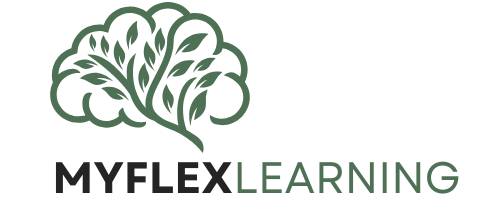In a world where knowledge is just a click away, online learning resources have become the superheroes of education. Gone are the days of dusty textbooks and stuffy classrooms. With a few taps on a keyboard, anyone can dive into a treasure trove of courses, tutorials, and e-books that make learning as easy as binge-watching the latest series.
online learning resources
Online learning resources encompass a variety of platforms and tools that facilitate education outside traditional classrooms. These resources include online courses, tutorials, webinars, and e-books that users can access anytime. Platforms like Coursera, Udemy, and Khan Academy offer diverse subjects, catering to different learner preferences and skill levels.
Learning materials often provide interactive elements, enhancing user engagement through quizzes and discussions. Many online resources allow users to learn at their own pace, enabling them to balance study with other responsibilities. Users can track progress and revisit content, promoting better understanding and retention of knowledge.
In addition to structured courses, forums and study groups serve as valuable components of online learning. These platforms encourage collaboration among learners, providing support and motivation. Engaging with peers helps enhance the learning experience and build connections within communities.
A plethora of free resources exists, making quality education accessible to a broader audience. Websites like Open Culture and edX allow users to access top university courses without financial barriers. This affordability fosters an inclusive environment where anyone seeking knowledge can thrive.
As technology advances, innovations such as virtual reality and artificial intelligence are integrated into online learning resources. These developments promise to create immersive and personalized educational experiences, advancing the effectiveness of remote learning.
Ultimately, the convenience and flexibility of online learning resources redefine how individuals acquire knowledge. Continuous improvements in technology further enhance these platforms, meeting the demands of modern education.
Types of Online Learning Resources

Online learning resources fall into various categories, each serving diverse educational needs. Understanding these categories helps learners choose the most suitable options.
Free Resources
Numerous free resources offer high-quality educational content. Websites like Khan Academy and Coursera provide extensive courses at no cost. Open Culture aggregates links to free courses, e-books, and videos across multiple subjects. Users access diverse formats such as lectures, tutorials, and exercises without financial commitment. These resources foster inclusivity, allowing learners from different backgrounds to benefit from quality education. Community forums often accompany these platforms, facilitating interaction among users, enhancing collaborative learning experiences.
Paid Resources
Paid resources typically offer more structured courses with comprehensive content. Platforms like Udemy and LinkedIn Learning charge fees for courses, providing potential certification upon completion. These platforms deliver a range of subjects tailored for beginner, intermediate, and advanced learners. Personalized support from instructors often accompanies these paid resources, ensuring learners receive guidance throughout their educational journey. User reviews and ratings assist prospective students in selecting the best options for their needs. While these resources require investment, many students find the structured approach and additional support valuable for their learning objectives.
Benefits of Using Online Learning Resources
The advantages of online learning resources significantly enhance the educational experience. Flexibility and accessibility define these resources, catering to a wide audience.
Flexible Learning
Learning flows on each individual’s timeline with online resources. Students engage with content at their own pace, balancing education with personal commitments. Various platforms enable learners to access materials on-demand, enriching their understanding without time constraints. Diverse formats like video lectures and interactive quizzes accommodate different learning styles. Adapting study schedules according to personal needs fits seamlessly into daily life, promoting effective education for everyone regardless of location or schedule.
Access to Expert Knowledge
Expertise becomes readily available through online platforms. Many renowned instructors and industry professionals share their insights, providing invaluable knowledge. Courses cover specific subjects, equipping learners with skills relevant to their career goals. Achieving certification from recognized institutions enhances employment prospects. Engaging directly with professionals fosters a deeper understanding of complex topics. Interaction with experts supports learners’ growth, creating opportunities for guidance and mentorship throughout their educational journey.
Challenges Associated with Online Learning Resources
Online learning resources present distinct challenges that can hinder effective learning. Understanding these obstacles enables individuals to navigate them successfully.
Digital Divide
Access to technology remains a significant barrier for many learners. Individuals from low-income households often lack reliable internet or devices, restricting their ability to participate fully in online education. Communities with limited technological infrastructure face additional challenges, limiting opportunities for educational advancement. A report by the Pew Research Center shows that about 15% of U.S. households do not have internet access. This discrepancy creates inequity in education, as those without access miss out on quality resources and interactive learning experiences. Prioritizing equitable access addresses this digital divide, ensuring everyone has the opportunity to benefit from online learning.
Information Overload
The vast amount of information available online can overwhelm learners. Numerous courses, videos, and articles create a challenge in determining what is valuable and relevant. Research indicates that learners may experience decision fatigue when faced with too many options, leading to procrastination. Managing this overload requires effective strategies, such as curating resources based on specific learning goals. Prioritizing clarity and focus allows individuals to sift through available information more effectively, ultimately enhancing their educational experience. Balancing the volume of content with quality guidance supports learners in navigating their pathways in online education.
Tips for Selecting Quality Online Learning Resources
Assess the credibility of resources by verifying the provider’s reputation. Well-known platforms like Coursera, Udemy, and Khan Academy offer reliable content and user support. Look for expert instructors affiliated with respected institutions to ensure the educational quality matches expectations.
Evaluate user reviews and ratings before committing to a course. Many learners share feedback, highlighting course strengths and weaknesses, which can guide prospective students in their decision-making process. Analyzing testimonials often reveals practical insights about the learning experience.
Verify the content’s alignment with personal learning goals. Identify specific skills or knowledge desired, and search for resources that meet those objectives. Tailoring selections to individual needs maximizes learning efficiency and satisfaction.
Check the structure and format of courses. Interactive elements such as quizzes, discussions, and multimedia can enhance understanding and retention. Engaging materials support diverse learning styles and promote active participation.
Consider the availability of additional support. Resources with community forums or study groups facilitate interaction and foster collaboration. More opportunities for peer engagement often lead to enriched learning experiences.
Examine the cost implications of resources. Free platforms like edX and Open Culture provide access to high-quality educational content without financial constraints. Weigh the benefits of paid courses with potential certifications against budget considerations.
Monitor advancements in technology integrated into online learning. Innovations like virtual reality and artificial intelligence enhance the learning experience, offering personalized approaches. Staying updated on new features can lead to more effective educational choices.
accessible and flexible
Online learning resources have revolutionized education by making it more accessible and flexible. As technology continues to evolve, these platforms are set to offer even more personalized and engaging experiences. The variety of options available ensures that learners can find resources that fit their unique needs and preferences.
While challenges like the digital divide and information overload exist, proactive strategies can help individuals navigate these hurdles. By focusing on credible providers and aligning resources with personal goals, learners can optimize their educational journeys. Embracing the benefits of online learning not only enhances knowledge acquisition but also opens doors to new opportunities and career advancements.

